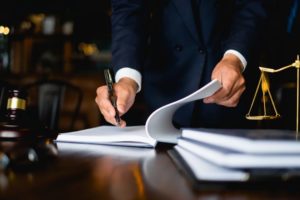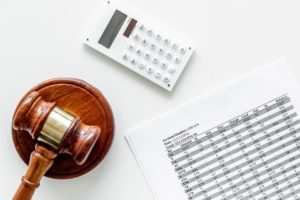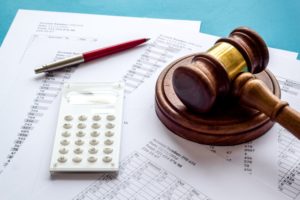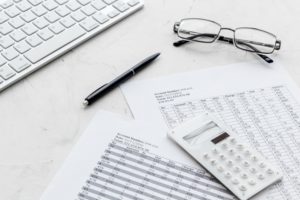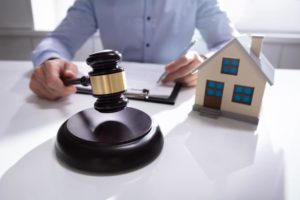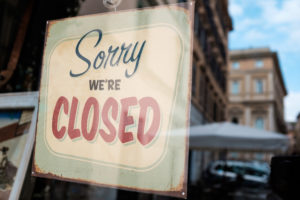
Cross-collateralization could cause an issue if you plan to file Chapter 7 bankruptcy in North Carolina. Chapter 7 allows individuals and families to discharge unsecured debts, meaning those that are not secured by some type of collateral.
Cross-collateralization often pops up as an unexpected concern during these cases. The financial institution cross-collateralizes the individual’s accounts, turning their unsecured debt into a secured loan. This then forces them to repay all related loans to keep the asset they financed, such as their home or car.
Understanding Secured and Unsecured Loans
In some cases, financial institutions require you to use the asset you purchase as collateral for your loan. This is most common in vehicle financing and home mortgages but can occur with many types of loans. If you do not make the payments as required, the bank will repossess the asset. They can then sell it to cover the cost of your debt. This is a secured loan.
On the other hand, an unsecured loan generally only depends on information about the borrower’s credit rating, income, and additional general information. The bank trusts you have the means to make the payments with interest.
How Does Cross-Collateralization Work?
Cross-collateralization occurs when you have more than one loan account at the same financial institution. Imagine you borrowed money from a credit union to finance a new car. You also have a personal loan and credit line at the same institution.
There may be a clause in your loan agreements allowing them to use the same collateral for all three accounts. This “cross-collateralization clause” is common in the paperwork for secured loans at some banks and credit unions.
It allows them to use the collateral to support any account you open with them. If they believe you may default on your loan when you file Chapter 7 bankruptcy, this could cause a serious issue.
What Happens If the Bank Cross-Collateralizes My Assets?
If the bank turns your unsecured debt into debt secured by an asset you were hoping to keep, you should contact a bankruptcy attorney right away. If you believe this could be an issue before you file, we can help you.
With secured loans in Chapter 7, you need to return the collateral or pay the balance of the loan. When your accounts have a cross-collateralization clause, you may need to pay the balance of all loans secured by the collateral before you can keep it.
This could mean paying off your car loan, personal loan, and credit line all at one time to keep your car or home. If you could do that, you likely would not be filing bankruptcy. Your options include:
- Surrendering the asset
- Working out a payment plan for all accounts with the bank before filing
- Reaffirming the debt and repaying all accounts
- Filing Chapter 13 to restructure your debts instead
Things to Remember If the Bank Collateralizes Your Assets
Accomplishing these options is not easy, especially if you expected Chapter 7 bankruptcy to discharge the unsecured debt as it normally would. An attorney may be able to offer advice and help you weigh your options. There are also some exemptions under North Carolina law that could allow you to protect:
- Vehicles of modest value
- Your home
- Other assets
It is important to note that a financial institution with a cross-collateralization clause in their contracts may also have language that benefits them. This clause allows them to use any money in your checking account to pay your debt to them. This could cause other unexpected problems.
Personal Injury Lawyer Near Me 828.286.3866
Our Bankruptcy Lawyer Who Can Identify Any Potential Concerns
Our North Carolina bankruptcy attorneys know what to expect when navigating Chapter 7 bankruptcies, as well as other types of cases. We understand the laws and common rules when it comes to:
- Federal bankruptcy code
- State laws
- Banks, credit unions, and other financial institutions
We help clients determine the best approach to bankruptcy and strategize a plan to protect assets when possible. We can review your accounts to determine if cross-collateralization is likely and recommend action to avoid it in some cases.
Our lawyer will also prepare and file your petition and take other steps to represent you and navigate the bankruptcy process on your behalf. This can make bankruptcy stressful and time-consuming process easier for you and your family.
Reach Out to Farmer & Morris Law, PLLC, About Your Bankruptcy Case Today
The attorneys at Farmer & Morris Law, PLLC, can answer your questions about Chapter 7 bankruptcy in North and South Carolina. We also help individuals and small businesses navigate Chapter 13, Chapter 11 reorganization, and Chapter 12 for family farmers.
Call (828) 286-3866 now to speak with a member of our team. We have offices to serve you in Rutherfordton, Morganton, and Shelby, NC, and Spartanburg, SC.



